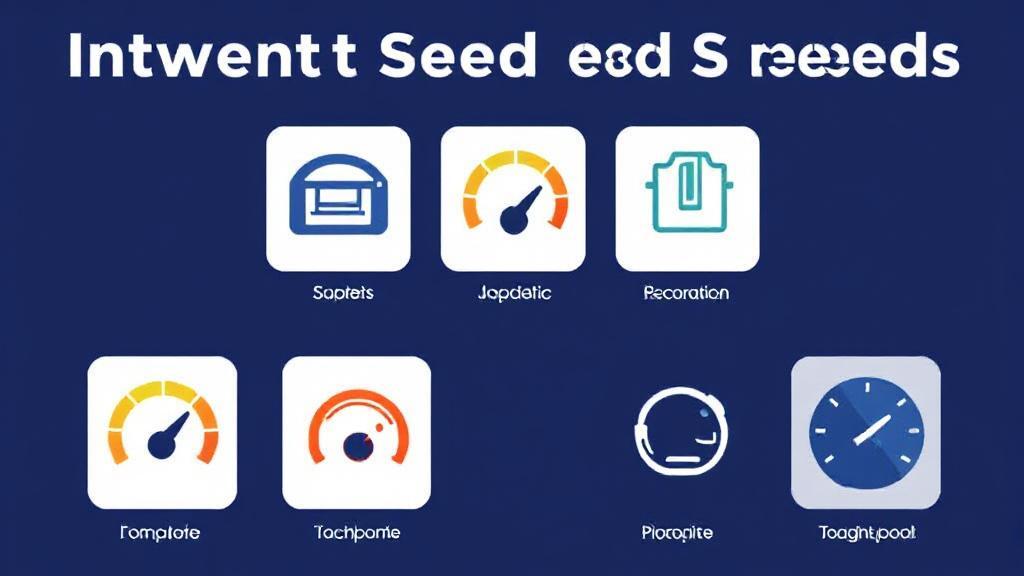Understanding Internet Speed
When it comes to choosing the right internet speed, it's essential to understand what internet speed actually means. Internet speed is typically measured in megabits per second (Mbps) or Gigabits per second (Gbps), which indicates how much data can be transferred in one second. The higher the Mbps, the faster your internet connection.
Key Components of Internet Speed
- Download Speed: The rate at which data is transferred from the internet to your device
- Upload Speed: The rate at which data is sent from your device to the internet
- Latency (Ping): Measures the delay before a transfer of data begins; lower latency is better for real-time applications
Assessing Your Internet Needs
Number of Users and Devices
The more people and devices connected to your network, the higher the internet speed you'll need:
- 1-2 users: 10-25 Mbps
- 3-5 users: 25-50 Mbps
- 6+ users: 50+ Mbps
Types of Online Activities
Different activities require different speeds:
Usage Categories
Basic Users
- Single user
- Basic browsing
- Email and social media
- Recommended: 25 Mbps
Average Users
- Small family
- HD streaming
- Light gaming
- Recommended: 50-100 Mbps
Heavy Users
- Large family
- 4K streaming
- Professional gaming
- Work from home
- Recommended: 200+ Mbps
Choosing the Right Internet Plan
Compare Providers and Consider Bundles
Research different internet service providers (ISPs) in your area. Websites like BroadbandNow can help you compare options. Some ISPs offer bundles that include internet, TV, and phone services.
Money-Saving Tips
- Compare multiple providers
- Look for promotional deals
- Bundle services when beneficial
- Regularly review usage patterns
- Negotiate with current provider
"The fastest speed isn't always the best value. Choose a plan that matches your needs without overpaying for unused bandwidth."
Testing Your Internet Speed
Before upgrading your plan, test your current internet speed using tools like:
Additional Considerations
Data Caps
Check if plans have data caps, which limit the amount of data you can use each month. If you exceed the cap, you may face additional charges or reduced speeds.
Future Needs
When selecting an internet plan, factor in:
- Potential increase in connected devices
- Emerging technologies
- Changes in work/study arrangements
- Family growth
Network Factors
Several factors can affect your internet speed:
- Network congestion during peak hours
- ISP reliability
- Type of connection
- Network infrastructure
Remember to periodically reassess your internet needs as technology evolves and usage patterns change. For more information, visit the Federal Communications Commission (FCC) website or consult with your ISP.
